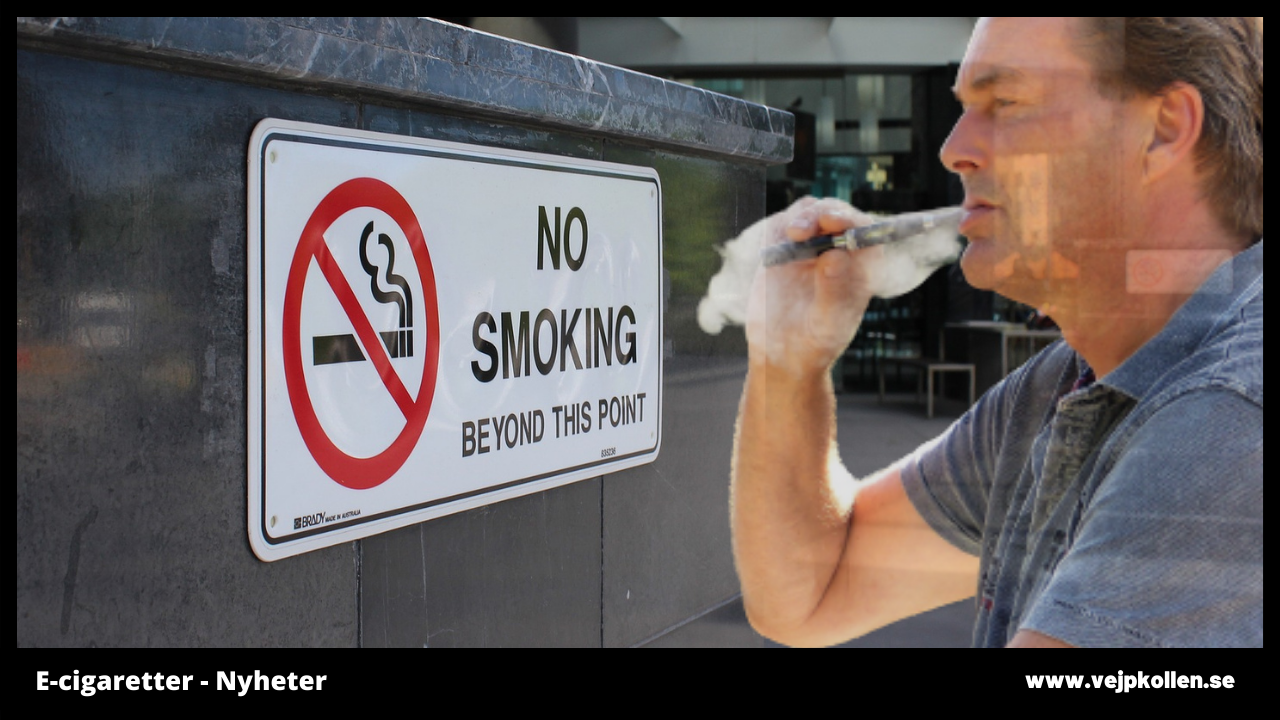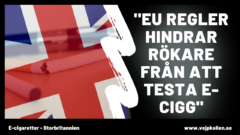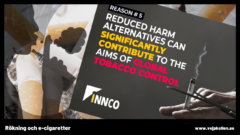Ahead of the WHO summit on tobacco and smoking, there is growing concern that e-cigarettes and other alternative nicotine products will be subject to more restrictions than before. The organisation INNCO is organising several actions in London to raise the issue for the British delegation to COP9.
"Thank you for doing the right thing!"
This is the message as representatives of the umbrella organisation INNCO gather outside Parliament in London on Monday. The demonstration comes as COP9, a meeting on the WHO's tobacco control framework, gets underway behind virtual, but still closed doors this week.
"We would like to thank the UK government for their work on tobacco harm reduction. At the same time, we want to encourage them to pursue the issue also within the WHO and spread their evidence-based approach across the world" says Charles Gardner, vejpare and Secretary General of INNCO, the International network of nicotine consumer organisations.
"We save our lives"
INNCO is an umbrella organisation with members in 37 countries. Its members are non-profit organisations working in various ways to promote tobacco harm reduction locally and internationally.
"We are ex-smokers who use less harmful nicotine products to avoid relapsing into smoking. This is how we save our lives. At the same time, we are stigmatised and suspected, just because we use nicotine - a drug that, in a purer form, doesn't really cause any more harm than caffeine," says the Commissioner. Charles Gardner.
Breaking stigma and raising awareness
Breaking the stigma of nicotine use is at the heart of harm reduction for smokers.
This is also one of the reasons why the UK model has attracted some attention. In addition, highlighting less harmful nicotine products as a tool to reduce smoking goes against the WHO's position on the issue, which considers products such as e-cigarettes, snus and nicotine pouches to be at least as harmful as cigarettes. This is something that several UK health organisations, doctors and scientists have repeatedly objected to.
"Right now, misleading information about harm reduction is spreading around the world at a rapid pace. And the only way to counteract this is to disseminate sound science and translate it into evidence-based strategies, as is being done in the UK," says Mr Perez. Charles Gardner.
Stopped by tough legislation
He argues that the UK's commitment to smokers weighs heavily. Their approach would benefit public health, especially in low- and middle-income countries, where the supply of cigarettes is almost unlimited but the availability of less harmful alternatives has become almost non-existent.
"Backed by the WHO, many countries, often those with state-owned tobacco companies, are implementing disproportionate and restrictive legislation based on prejudice, harm reduction and ignorance of nicotine," says Mr Gates. Charles Gardner.
He emphasises that although the UK has come a long way in terms of tobacco harm reduction, they are not alone.
"New Zealand, France, Estonia, even the US, are moving in the same direction. The US FDA recently concluded that e-cigarettes, heat-not-burn products and snus may be appropriate to protect public health. In doing so, they have recognised the concept of harm reduction. It may not be done in the best possible way, but it is nonetheless important," says Mr Gardner.
Politicians in favour of e-cigarettes
On the occasion of the demonstration, INNCO is organising a meeting with British doctors and politicians.
Mark Pawsey leads a cross-party group in Parliament to promote e-cigarettes as an alternative for smokers:
"Since we introduced vejpning as a tool to reduce smoking, smoking rates have steadily declined. We see a similar trend in New Zealand. In contrast, we see that countries with a more sceptical view of e-cigarettes are still struggling to reduce smoking. And the WHO recently praised India, a country where nearly a million people die each year from smoking, for banning e-cigarettes," Mark Pawsey writes in the The Daily Express.
After Sweden, the UK has the lowest smoking rate in Europe, with an average of 14 per cent. In Sweden, where around 1 million people prefer snus to cigarettes, the average is 7 per cent.





Hello!
I wonder if you have ever asked David Eberhard if he would like to invite you to his podcast "Health for the unhealthy"? They've had several episodes on tobacco harm minimisation, like the most recent one, but then they've almost only talked about snus and only mentioned vejpning in passing.